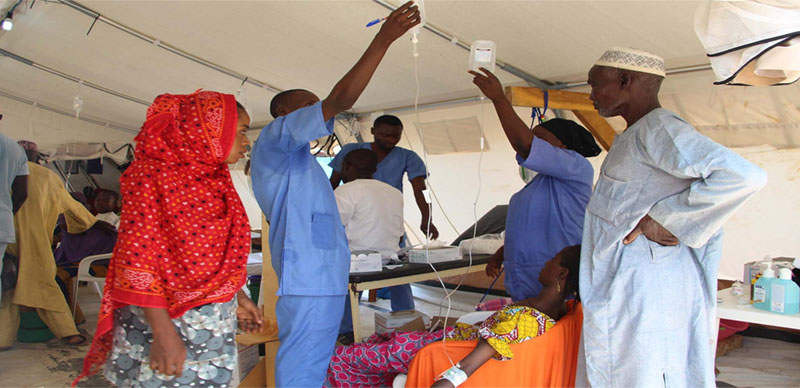
Cholera: Lagos death toll climbs to 24, cases hit 417
According to Professor Akin Abayomi, the Lagos State Commissioner for Health, the death toll from the cholera outbreak that is sweeping across the state has reached 24.
In addition to confirming 35 cases out of the 417 suspected cases spread across 20 Local Government Areas in the state, he made this revelation on his Instagram handle on Friday.
According to the Commissioner, there were "417 suspected cases, 35 confirmed cases, and 24 recorded deaths" in the situation report as of June 19, 2024.
"Let us strictly maintain cleanliness both inside and outside of our bodies. #SafetyFirst #ForAGreaterLagos
Agege, Badagry, Ikeja, Mushin, Ajeromi-Ifelofun, Epe, Ikorodu, Ojo, Alimosho, and Eti-Osa were among the places where the cases were reported.
The others were Surulere, Lagos mainland, Ifako-Ijaiye, Lagos Island, Shomolu, Apapa, Kosofe, Oshodi-Isolo, Amuwo-Odofin, and Ibeju-Lekki.
The food and water-borne illness cholera is caused by ingesting the bacteria— Vibrio cholerae — in contaminated water and food. Cholera can cause severe acute watery diarrhoea, and the severe forms of the disease can kill within hours if left untreated.
Cholera is a seasonal and endemic disease in Nigeria that primarily strikes during the rainy season and more frequently in places with inadequate sanitation.
The World Health Organisation said on Thursday that there has been an increase in cholera cases across a number of regions globally, with over 1,900 deaths and nearly 195,000 cases recorded in 24 countries since the year 2024 began.
According to the WHO, the Eastern Mediterranean Region had the greatest number of cases, with the African, American, Southeast Asian, and European regions following in order of reported cases.
However, the global health organisation stated in its bulletin issued on Wednesday that there are no cases known to have occurred in the Western Region.
It claimed that by March, its worldwide supply of oral cholera vaccines had run out, but was able to exceed “the emergency target of five million doses in early June for the first time in 2024.”





